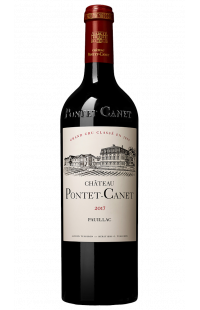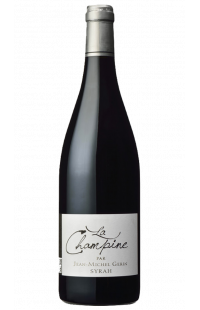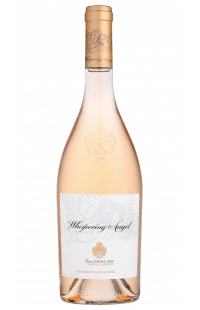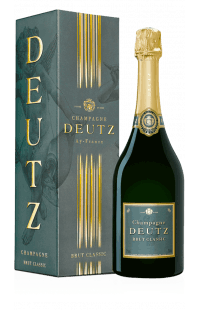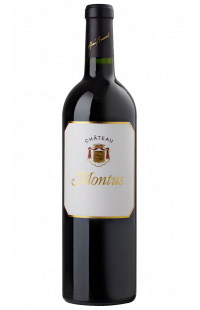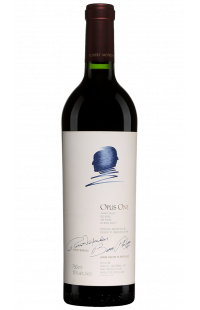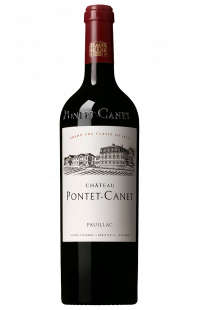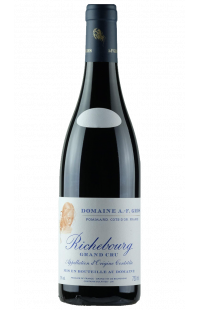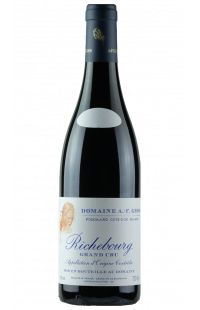- Menu
- All our wines
- Bordeaux
-
Rhône
-
Burgundy
-
Rosés Wines
-
Champagne
- France
-
World
- PRIMEURS
- ORGANIC WINES
Richebourg Wines
The Wines of Richebourg: A Treasure of Burgundy
Discover the fascinating world of Richebourg wines, their history, their unique terroir, and why they are so prized by enthusiasts and investors worldwide.
The wines of Richebourg represent one of Burgundy's most precious jewels. Located in the prestigious Côte de Nuits, this vineyard is renowned for producing some of the most sought-after and expensive wines in the world. Wine lovers, collectors, and investors vie for these rare bottles, captivated by their complexity, depth, and exceptional aging potential.
History of Richebourg Wines
The history of Richebourg wines dates back several centuries, with origins deeply rooted in Burgundian tradition. As early as the Middle Ages, Cistercian monks recognized the exceptional quality of this terroir. Over the centuries, viticulture and winemaking techniques have evolved, perfecting methods to produce increasingly refined wines.
Geography and Terroir
The Richebourg vineyard is located in the village of Vosne-Romanée, at the heart of the Côte de Nuits in Burgundy. The terroir of Richebourg is characterized by soil rich in limestone and clay, combined with a continental climate featuring hot summers and cold winters. These unique conditions allow the Pinot Noir grape variety to flourish, giving the wines their distinctive structure and elegance.
Producers of Richebourg
Several famous estates own parcels of Richebourg, each bringing its unique touch to the wine produced. Among the most renowned is the Domaine de la Romanée-Conti, perhaps the most prestigious producer in the region. Other notable producers include Domaine Leroy and Domaine Méo-Camuzet, as well as several small producers who contribute to the diversity of Richebourg wines.
The Pinot Noir Grape Variety
Pinot Noir is the only grape variety permitted in the production of Richebourg wines. This grape is renowned for its sensitivity to climatic variations and soil characteristics, making it a perfect reflection of the terroir. Wines made from Pinot Noir are known for their finesse, aromatic complexity, and aging potential.
Winemaking Techniques
The winemaking techniques used for Richebourg wines combine traditional methods with modern innovations. Manual harvesting, fermentation in oak barrels, and extended aging are some common practices. Each producer has their own methods, but all strive to preserve the purity and expression of the terroir.
Characteristics of Richebourg Wines
Richebourg wines are distinguished by their complex aromatic profile, with notes of red and black fruits, spices, truffle, and sometimes underbrush. They possess a solid tannic structure, balanced acidity, and remarkable length on the palate. These characteristics allow the wines to age well, developing increased depth and complexity over time.
Tasting Richebourg Wines
Tasting Richebourg wines is an unforgettable experience. To get the best out of them, it is recommended to enjoy them at a slightly cool temperature, around 16-18°C. Young wines can be aerated in a decanter to reveal their bouquet, while older vintages often benefit from a more delicate opening. In terms of food and wine pairings, Richebourg wines pair magnificently with rich and flavorful dishes like game, red meats, and aged cheeses.
Exceptional Vintages
Certain vintages of Richebourg stand out for their exceptional quality. The years 1990, 1999, 2005, 2010, and more recently 2015 and 2018 are often cited as benchmarks in terms of quality. Each vintage has its own characteristics, influenced by the climatic conditions of the year, but all offer a unique expression of the Richebourg terroir.
Investing in Richebourg Wines
Investing in Richebourg wines can be a wise decision for connoisseurs. These wines are not only prized for their exceptional quality but also for their rarity. The fine wine market is booming, with international demand continually increasing. For investors, it is essential to research vintages, producers, and storage conditions to maximize the value of their collection.
Purchasing Richebourg Wines
Purchasing Richebourg wines can be done through various channels. Auctions are a popular option, often offering rare bottles and old vintages. Specialized wine merchants, wine estates, and online platforms dedicated to fine wines are also reliable sources. The prices of Richebourg wines vary considerably depending on the vintage, producer, and state of preservation.
The Great Estates of Richebourg
Among the great estates of Richebourg, the Domaine de la Romanée-Conti occupies a central place. Renowned for producing some of the best wines in the world, this estate is synonymous with excellence and tradition. Domaine Leroy, known for its biodynamic practices, and Domaine Méo-Camuzet, with its elegant and structured wines, are also highly respected. These estates contribute to the renown and quality of Richebourg wines.
Evolution of the Richebourg Wine Market
The Richebourg wine market has evolved significantly over the past decades. International demand has increased, particularly in Asia and North America. Influential wine critics, such as Robert Parker and the Revue du Vin de France, play a key role in the popularity of these wines. This global recognition has led to a rise in prices and increased competition to acquire these precious bottles.
Influence of Climate on Production
Climatic variations have a significant impact on the production of Richebourg wines. Changes in temperature, precipitation, and extreme weather conditions can affect the quality and yield of the harvests. Winemakers must adapt to these challenges by adjusting their viticultural practices and adopting innovative techniques to preserve the quality of the wine.
Richebourg in Popular Culture
Richebourg wines have also found their place in popular culture. They are often mentioned in literature, cinema, and gastronomy as symbols of luxury and refinement. Their presence in Michelin-starred restaurants and prestigious cellars contributes to their aura and mystique.
Comparison with Other Burgundy Grands Crus
Richebourg wines are often compared to other Burgundy grands crus such as Romanée-Conti, La Tâche, and Échezeaux. Each cru has its own distinctive characteristics, but all share exceptional quality and remarkable aging capacity. The differences between these crus lie in the nuances of the terroir, winemaking techniques, and the philosophies of the winemakers.
Richebourg Wines and Gastronomy
Richebourg wines hold a special place in haute gastronomy. Their aromatic complexity and tannic structure make them perfect companions for elaborate dishes. From Michelin-starred chefs to lovers of refined cuisine, many celebrate these wines as ideal partners for sophisticated culinary creations.
Anecdotes and Famous Stories
The vineyards of Richebourg are rich in fascinating stories and anecdotes. From tales of difficult harvests to fortuitous discoveries of exceptional vintages, each plot has its own stories to tell. Winemakers often share anecdotes about memorable years and the challenges they have overcome to produce these exceptional wines.
Impact of Climate Change
Climate change poses a major challenge for Richebourg winemakers. Higher temperatures and extreme weather conditions alter the vine cycles and affect the quality of the grapes. Producers strive to adapt by adopting sustainable practices and seeking solutions to mitigate the effects of climate change on their vineyards.
Conclusion
Richebourg wines represent the viticultural excellence of Burgundy. Their rich history, unique terroir, and meticulous production make them sought after by enthusiasts and investors worldwide. Whether for tasting, collecting, or investing, Richebourg wines offer an incomparable experience, showcasing the passion and expertise of Burgundian winemakers.
FAQs
What makes Richebourg wines so special? Richebourg wines are special due to their unique terroir, the Pinot Noir grape variety, and the artisanal winemaking techniques used by renowned producers.
What are the best vintages for Richebourg wines? Exceptional vintages include 1990, 1999, 2005, 2010, 2015, and 2018, each offering a unique expression of the Richebourg terroir.
How should Richebourg wines be tasted? Richebourg wines should be tasted at a temperature of 16-18°C. Young wines can benefit from decanting, while older vintages require a more delicate opening.
Where can one buy Richebourg wines? Richebourg wines can be purchased at auctions, from specialized wine merchants, directly from wine estates, or via online platforms dedicated to fine wines.
Are Richebourg wines a good investment? Yes, due to their exceptional quality, rarity, and growing demand, Richebourg wines are considered a wise investment for collectors and connoisseurs.
Which Richebourg producers are the most renowned? The Domaine de la Romanée-Conti is the most prestigious, closely followed by Domaine Leroy and Domaine Méo-Camuzet, all recognized for the exceptional quality of their wines.
Impact of climate change on Richebourg wines? Climate change affects vine cycles and grape quality, but Richebourg producers adapt their practices to mitigate these effects and preserve the quality of their wines.
